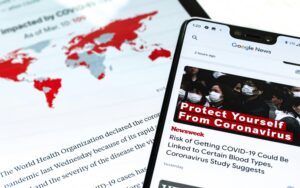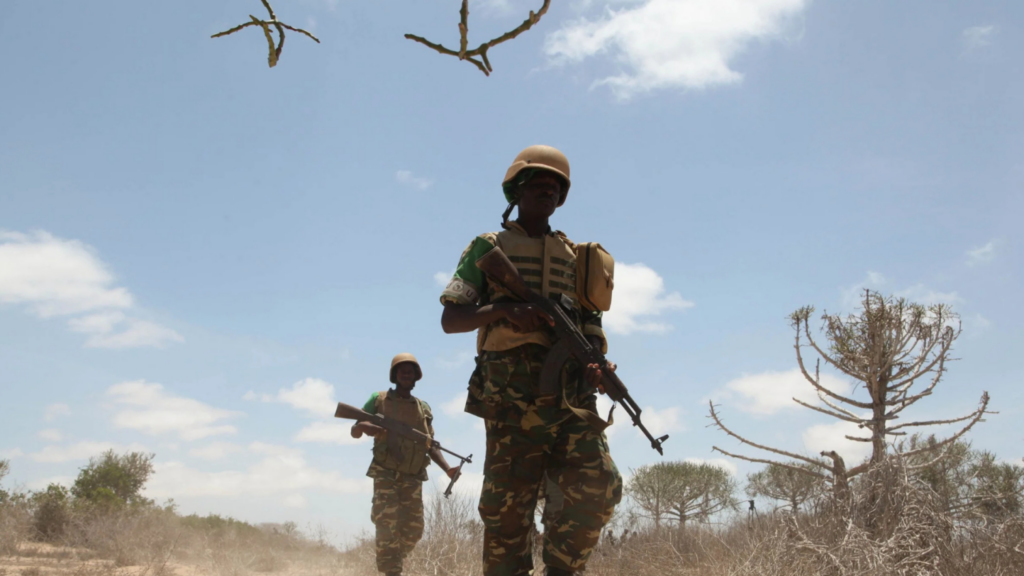U.S. Withdrawal From WHO: Global Health and Security Implications
The United States plays a critical role in supporting the World Health Organization (WHO) through substantial financial contributions, technical expertise, and collaboration on global health initiatives. As the largest donor, the U.S. provided $1.284 billion during the 2022-2023 biennium, accounting for approximately 15% of WHO’s actual funding. This support is essential for WHO’s core activities, such as developing health guidelines, investigating disease outbreaks, and coordinating information-sharing. Efforts by former President Donald Trump to withdraw from WHO in 2020 and again upon returning to office this January highlight the potential threat to WHO’s financial stability and global health initiatives. Although this move was reversed by President Joe Biden in 2021, future U.S. disengagement could undermine WHO’s ability to address global health emergencies and reduce American influence on global health governance.
Beyond financial support, the U.S. provides technical expertise through agencies like the Department of Health and Human Services (HHS), the Centers for Disease Control and Prevention (CDC), and the United States Agency for International Development (USAID). The U.S. hosts 68 WHO collaborating centers, including 17 at the CDC, specializing in areas like pandemic response and disease surveillance. Institutions such as the National Institutes of Health (NIH) and leading universities also contribute research and expertise, enhancing WHO’s work.
Continued U.S. engagement with the WHO is essential to global health security, pandemic preparedness, and maintaining American influence over international health policy. Withdrawing from the WHO would not only weaken global health initiatives but also expose the United States to greater public health risks, diminish its leadership on the global stage, and allow other countries—particularly China—to fill the power vacuum left behind.
U.S. Efforts to Strengthen Global Health Security, Equity, and WHO Reform
The U.S.-WHO partnership also focuses on global health security and health equity. Through the Global Health Security Agenda (GHSA), the U.S. supports the implementation of the International Health Regulations (IHR) to strengthen health systems worldwide. By 2023, 58 member states had met WHO’s health security targets, with U.S. experts participating in nearly half of all WHO Joint External Evaluation (JEE) missions. The U.S. also collaborates with WHO on initiatives like the Global Action Plan to expand universal health coverage and programs to train health professionals in underserved regions.
Moreover, the U.S. commitment extends to combating major global health threats. It collaborates with WHO to advance the 95-95-95 targets to end HIV by 2030 and supports vaccine development through the African Vaccine Regulatory Forum (AVAREF). U.S. agencieswork with WHO to improve labor standards for healthcare workers and invest in digital health systems to enhance healthcare access in low-income countries. Despite its leadership, the U.S. has pushed for WHO reform, advocating for more transparent and efficient operations. Given WHO’s reliance on voluntary contributions, the U.S. supports increasing assessed contributions to ensure more predictable funding, aiming for 50% of the budget to be financed through such means by 2030. The U.S. also backs WHO’s new investment initiative, which seeks to raise $7 billion by 2028 to close funding gaps and improve effectiveness.
U.S. Withdrawing from WHO: Consequences for Global Health and U.S. Influence
The reason why the US is withdrawing from WHO is because former President Trump believes it unfair that the U.S. contributes significantly more to the WHO than China, despite its larger population, with the U.S. providing 14.5% of the WHO’s total budget, including $130 million in membership dues and substantial voluntary contributions. Trump’s plan to withdraw U.S. funding from the WHO is rooted in conservative criticism of the organization’s handling of COVID-19 and perceived alignment with China.
However, experts warn that this move could undermine U.S. pandemic preparedness, global vaccine equity, and national security while allowing China to increase its influence within the WHO. If the U.S. withdraws from the WHO, it would severely weaken global health initiatives, disrupt pandemic preparedness efforts, and diminish U.S. influence over international health policy. The loss of U.S. funding would threaten critical programs like disease surveillance, health system strengthening, and the proposed pandemic agreement, which aims to improve global collaboration during future pandemics. Without U.S. participation, the agreement’s value (including the one concerning action in case of future pandemics) could be undermined, and the U.S. would lose access to vital health data, including influenza strain monitoring, increasing domestic vulnerability to microbial threats. WHO would likely rely more on private donors like Nestlé and Meta, while countries like China could expand their influence, posing risks to U.S. business and geopolitical interests.
Additionally, cutting ties would end the close collaboration between WHO and the CDC, removing American scientists from WHO initiatives and limiting the global exchange of public health knowledge. Although the U.S. is required to provide one year’s notice and settle outstanding contributions, the legal process for withdrawal remains uncertain, leaving the future of U.S. involvement and global health cooperation in jeopardy.
Experts Warn of Serious Global and Domestic Consequences from U.S. Withdrawal from WHO
Experts widely agree that the U.S. withdrawal from the WHO would have serious global and domestic consequences, weakening both public health and America’s international influence. “It’s a very tragic and sad event that could only hurt the United States in the long run,” warns William Moss of Johns Hopkins, emphasizing that losing access to WHO’s disease surveillancecould increase domestic vulnerability to outbreaks. Pauline Scheelbeek highlights that “diseases ignore borders,” meaning U.S. withdrawal threatens global public health. Experts also stress that WHO’s ability to respond to health emergencies would be severely hampered without U.S. funding. “For Americans, it may not be obvious immediately… but America cannot fight [disease outbreaks] alone,” explains Dr. Ashish Jha of Brown University.
Furthermore, legal challenges may arise, as Lawrence Gostin of Georgetown University argues that Trump “needs Congress’ approval to withdraw.” Critics also question the feasibility of alternatives, with Tom Frieden noting, “What alternative do we have that works with 194 countries and is trusted by them?” Political scientist Scott Greer underscores that WHO is “central in almost any network or initiative in global health,” and leaving would make the organization more responsive to other countries—particularly China—while isolating the U.S. from international health coordination. As Stefano Bertozzi of UC Berkeley cautions, “There is no way you can isolate yourself from the world and be safe from the many health threats that don’t respect borders.”
In addition to that, WHO expressed hope that the United States would reconsider its decision, stating, “We look forward to engaging in constructive dialogue to maintain the partnership between the USA and WHO for the benefit of the health and well-being of millions worldwide.”
References
Hamzelou, J. (2025) ‘This is what might happen if the US withdraws from the WHO,‘ MIT Technology Review, 25 January. Available at: https://www.technologyreview.com/2025/01/23/1110460/us-withdraws-from-the-who/.
‘What will happen to the World Health Organization without US funding?’, Cassie Buchman, The Associated Press, 2025, News Nation Now, https://www.newsnationnow.com/health/who-us-funding/
The U.S. government and the World Health Organization | KFF (2025). Available at: https://www.kff.org/global-health-policy/fact-sheet/the-u-s-government-and-the-world-health-organization/.
The United States of American and the World Health Organization: Partners in Global Health. Available at: https://www.who.int/about/funding/contributors/usa.
Glenza, J. (2025) ‘Uncharted territory for the WHO if Trump withdraws US membership,’ The Guardian, 18 January. Available at: https://www.theguardian.com/world/2025/jan/18/world-health-organization-trump.
Richter, F. (2025) ‘The U.S. is the largest contributor to the WHO,’ Statista Daily Data, 21 January. Available at: https://www.statista.com/chart/33800/top-contributors-to-the-world-health-organization.




